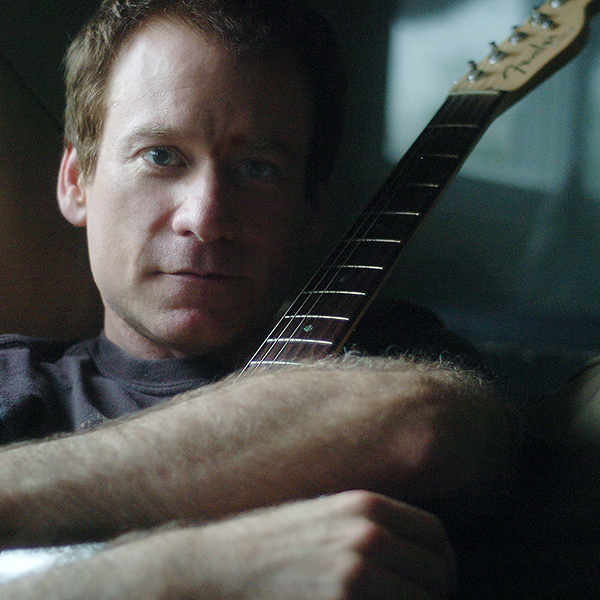by Clay Mills
Nov 24, 2024

When it comes to songwriting, good lyrics might get your songs noticed, but great lyrics are what make them unforgettable. As a songwriter, I’ve been blessed to write songs that have reached the hearts of millions of people. To achieve that, I’ve had to master some key techniques that elevate lyrics to the next level. Whether you’re pitching songs to publishers, collaborating with artists, or simply looking to hone your craft, focusing on a few specific areas can make all the difference. Let’s dive in and learn to quickly transform your song lyrics.
Start with the Title: The First Impression Matters
Before anyone hears your song, they see the title. And trust me, the title is important—it’s the first impression your song makes. When producers, artists, or publishers are scrolling through playlists of songs, they’re drawn to song titles that intrigue them, spark curiosity, or promise a fresh perspective.
- Be Original: It’s shocking how many songwriters pitch titles that have already been used multiple times. Before committing to a title, Google it or check databases like ASCAP to ensure it’s not overly common. A unique title sets your song apart.
- Bring a Fresh Angle: Even if your title isn’t groundbreaking, the way you approach it should be. For example, Brian Davis, a songwriter who collaborates with hit recording artist Lee Brice, shared with me that even though he’s established in the industry, he can’t just bring any idea to the table. Lee Brice expects killer ideas, and if Brian doesn’t deliver, someone else will. That mindset keeps him pushing for creativity and originality.
- Ask Yourself: Is there a fresher, cooler way to express my idea? Reframing your title can make all the difference between good and great.
Universal Appeal: Connect with More Listeners
One of the most common mistakes I see in songwriting is making the lyrics too specific. Overly detailed stories can unintentionally alienate your audience. Instead, aim for universality without losing the emotional core of your song.
- Avoid Over-Specifics: For example, I once heard a song about a dad raising two kids after their mom left, and the grandpa had just died. While it was heartfelt, every added detail narrowed the potential audience. Instead of drawing people in, it pushed them away because few listeners could relate to such a specific story.
- Simplify the Story: If your song doesn’t need children, marriage, or other specific details to convey its message, leave them out. Focus on broader themes like love, longing, or resilience—emotions that resonate universally.
- Don’t Mistake This for Being Generic: Universal doesn’t mean watered down. It’s about crafting lyrics that feel personal to anyone who hears them. For instance, you don’t need to say, “You’ve been my wife for 16 years, and we have three kids.” Instead, focus on the feeling: “You’ve been my everything.”
A great example of this concept is John Lennon’s ability to take abstract ideas and make them relatable to a mass audience. That skill is invaluable, especially for commercial songwriting.

Clarity: Keep It Simple and Direct
In today’s world, people are bombarded with content. With 100,000 songs uploaded to Spotify daily, clarity in your lyrics is more important than ever. A clear message helps your song rise above the noise.
- Say What You Mean: Many songwriters get so caught up in trying to be clever or poetic that they lose the essence of their message. Instead of dancing around the point, just say what you’re trying to say.
- Classroom Experiment: In my master class, I challenge students to write a lyric so simple that they think I’ll call it boring. Inevitably, those lyrics end up being their best work because they focus on the message rather than trying to impress.
- Pro Tip: Replace overly abstract lines with direct ones. For example, instead of saying, “You’re my blue sky,” simply say, “You make every day brighter.” The simpler line often lands with more emotional impact. You can always spice up a lyric later in the re-writing process if you start with a clear message.
While clarity is critical, it doesn’t mean you can’t be creative. Poetic devices, metaphors, and imagery have their place—just don’t let them obscure your song’s meaning.
Emotion: Dial It Up
Emotion is the lifeblood of any great song. It’s what makes people cry, laugh, or hit replay. If your lyrics lack emotional intensity, they won’t stick.
- Focus on One Emotion: Smokey Robinson once said, “A song is about one thing.” That advice has stuck with me throughout my career. If your song is about anticipation, let every lyric build on that feeling. Don’t dilute it by introducing unrelated emotions or ideas.
- Build the Emotion: One songwriter I mentored recently wrote a song about a man traveling home to see his love. The verses built anticipation beautifully—200 miles away, 100 miles, then 50. But in the chorus, the emotion fizzled because the singer had already arrived, and the tension was resolved. We reworked the song to sustain the anticipation throughout. The result? A much more compelling story.
- Audit Your Lyrics: Go through your song and ask, “Does this line support the central emotion?” If it doesn’t, consider rewriting it. Even one weak line can undermine the overall impact of your song. A book like SongBuilding can help you through the re-writing process.
Remember, emotion isn’t just about what you say—it’s about how you say it. Pairing the right melody with your lyrics can amplify the emotional effect tenfold.
Why These Elements Matter Now More Than Ever
The songwriting landscape has changed drastically over the years. Decades ago, abstract lyrics and rock records that felt like “art pieces” dominated the charts. Today, clarity and emotional resonance are more critical than ever. Why? Because the sheer volume of music available means listeners won’t invest time trying to decode a song’s meaning.
That’s not to say you can’t experiment or write for niche audiences. But if your goal is commercial success or reaching a broad audience, these principles will serve you well.
A Quick Recap: Turning Good Lyrics into Great Ones
- Start with a Unique Title: Make it stand out and promise something fresh.
- Aim for Universal Appeal: Focus on broad themes and avoid overly specific details.
- Prioritize Clarity: Say what you mean directly and powerfully.
- Crank Up the Emotion: Ensure every line supports and enhances the song’s emotional core.
Final Thoughts on How To Transform Your Song Lyrics
Transforming your song lyrics from good to great isn’t about reinventing the wheel. It’s about fine-tuning your craft, focusing on the essentials, and connecting with your audience on a deeper level. By honing your title, making your story relatable, prioritizing clarity, and amplifying emotion, you’ll create songs that resonate long after the first listen.
For more tips and tools, check out SongTown’s resources, join our community of songwriters, and check out the video podcast below. Whatever your goals, keep writing, keep refining, and most importantly, keep connecting through your songs.
Here’s to writing the next great hit! ~Clay
Watch a full discussion on this subject here:
share
Write Better Songs Faster
Songwriting Success is Clay & Marty's 10-day video series that will help you level-up your songs and finish them faster. Enter your email address to get started!



